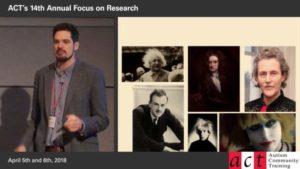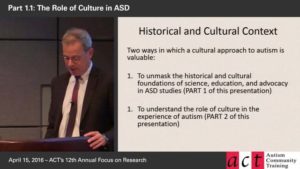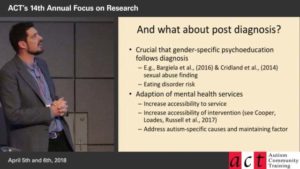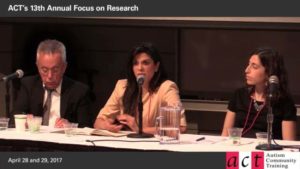Brenda Fossett, PhD, BCBA-D, Capilano University
Filmed November 2020 – edited into 14 parts; total 213 minutes
Parents often assume that the difficulties they face in helping their children develop healthy daily routines are a part of their child’s autism and must be endured. This presentation provides parents and caregivers an overview of Positive Behavior Support (PBS) with the goal of supporting them to be proactive in helping neurodiverse children to be safely included in home, school and community activities. Core features of PBS include the application of behavioral science (ABA), the use of practical strategies to promote desired behavior, and a focus on improving the quality of life for the individual and their family.
A goal of this presentation is to increase parental awareness of good PBS service, so they can find a behavior consultant to support them in using positive strategies to address essential functional skills, including toileting, sleep and mealtimes. Importantly, parents will learn about positive strategies they can begin using immediately with young children to lessen the child’s reliance on destructive or self-injurious behaviors to communicate their distress. Parents of older children will better understand the challenges their children are experiencing and how to identify skilled support to provide the young person with positive ways of having their needs met while being fully included in their community.
Learning Outcomes
At the end of this workshop, participants will be able to:
- Define Positive Behavior Support
- Identify common misconceptions regarding PBS
- Identify common purposes served by problem behavior
- Identify components of a quality PBS-based intervention
- Describe common preventative strategies
Presentation Handout (40 Pages)
Presenter Bio
Brenda Fossett is an inspired teacher who is widely admired for her ability to convey complex concepts to those who work with children and adults with diverse needs, whether they are educational professionals or parents. Dr. Fossett has been on faculty in the Applied Behavior Analysis – Autism Department at Capilano University since 2013. She is a certified teacher of the deaf and a Board Certified Behavior Analyst. Dr. Fossett has extensive clinical experience providing behavioral and educational consultative services to children with ASD, deafness, and other developmental conditions in home, school, and community settings. Her scholarly and clinical interests include: applied behavior analysis, the implementation of positive behavior support in home and school settings, and educational interventions for deaf children with developmental disabilities.
Part 1: Positive Behavior Support Introduction
Topics Covered:
- Traditional vs. current views on behaviour
- Application of behavioral science
- PBS process
Part 2: Functional Behavior Assessment
Topics Covered:
- Identifying problem behaviors
- Four functions of behaviour
Part 3: Indirect Assessment
Topics Covered:
- Gaining information from relevant sources
- Identifying physical and environmental factors that influence behaviors
- Identifying functions of behaviors
Part 4: Direct Assessment and Functional Analysis
Topics Covered:
- How to gather evidence to support hypotheses regarding problem behavior
- What information direct observation should provide
- When functional analysis is needed
Part 5: Designing PBS Plans and Setting Events
Topics Covered:
- Identifying setting events and possible strategies
- Preventing setting events from occurring
- Reducing impact of setting events
Part 6: Antecedent Strategies
Topics Covered:
- Increase cues for appropriate behaviors
- Decrease cues for problem behaviors
Part 7: Teaching Strategies
Topics Covered:
- How to pick teaching strategies based on context, challenges and goals.
- Functional Communication Training (FCT)
Part 8: Consequence Strategies
Topics Covered:
- How to increase desired behaviors
- How to increase alternative replacement behaviors
Part 9: PBS Example: Transition to Bath Time
References video shown in Part 4.
Topics Covered:
- Breaking down an example of PBS
Part 10: Accessing PBS Services
Topics Covered:
- What to look for in a PBS service
- Behavioral parent training
- Data collection systems
Part 11: Introduction to Visual Support Strategies to Prevent Problem Behavior
Topics Covered:
- Challenges in processing speech or sign language
- Predictability and ease transitions
- Understanding expectations
Part 12: Visual Support Strategies
Topics Covered:
- Environmental supports
- Visual schedules
- Object cue schedules
- Within activity schedules
Part 13: Visual Support Strategies Continued
Topics Covered:
- Rule supports
- ‘Universal No’ symbol
- Choice Boards
- Waiting Supports
Part 14: Putting it All Together
Topics Covered:
- Collaborative Partnerships
- Parents’ roles






